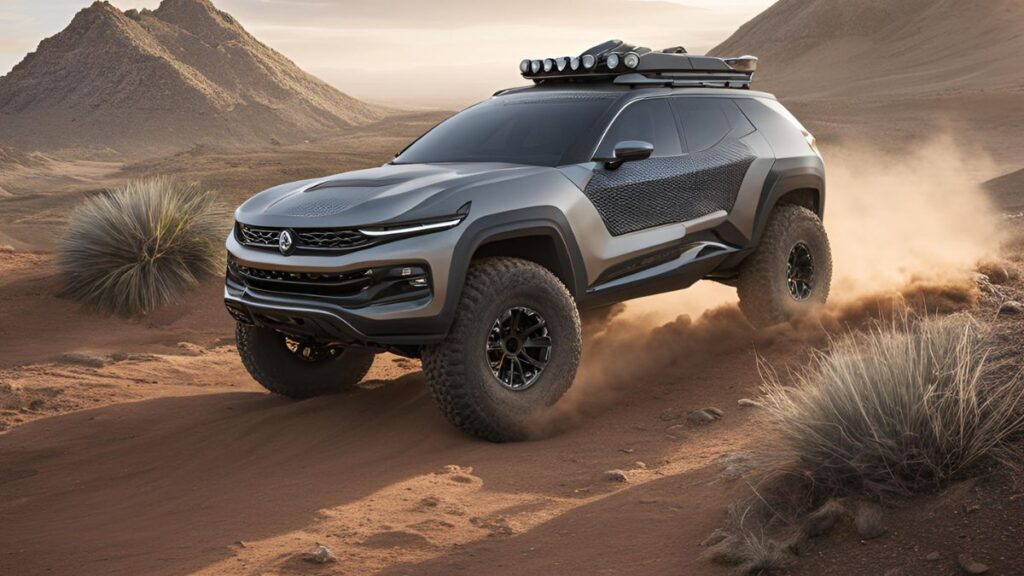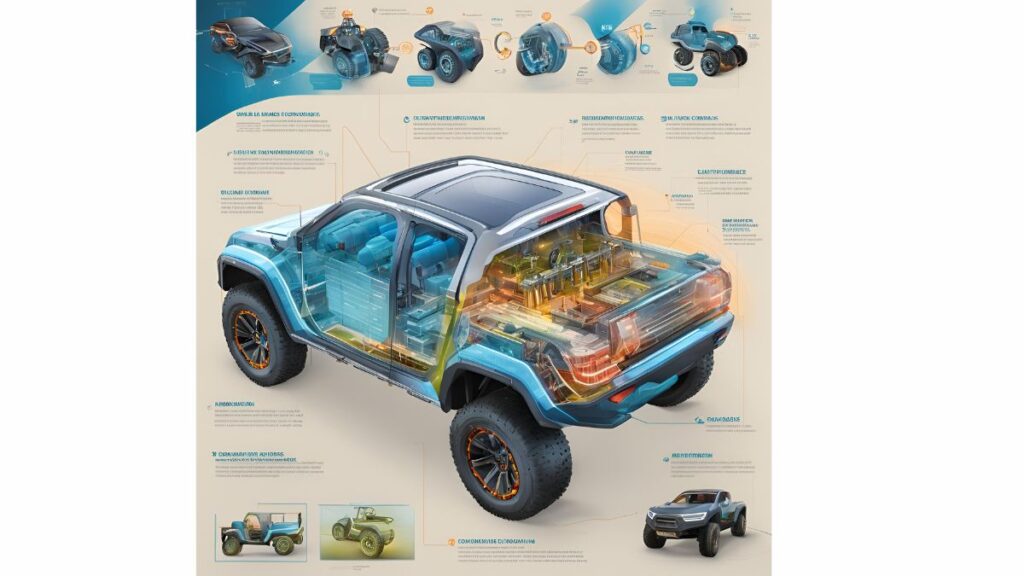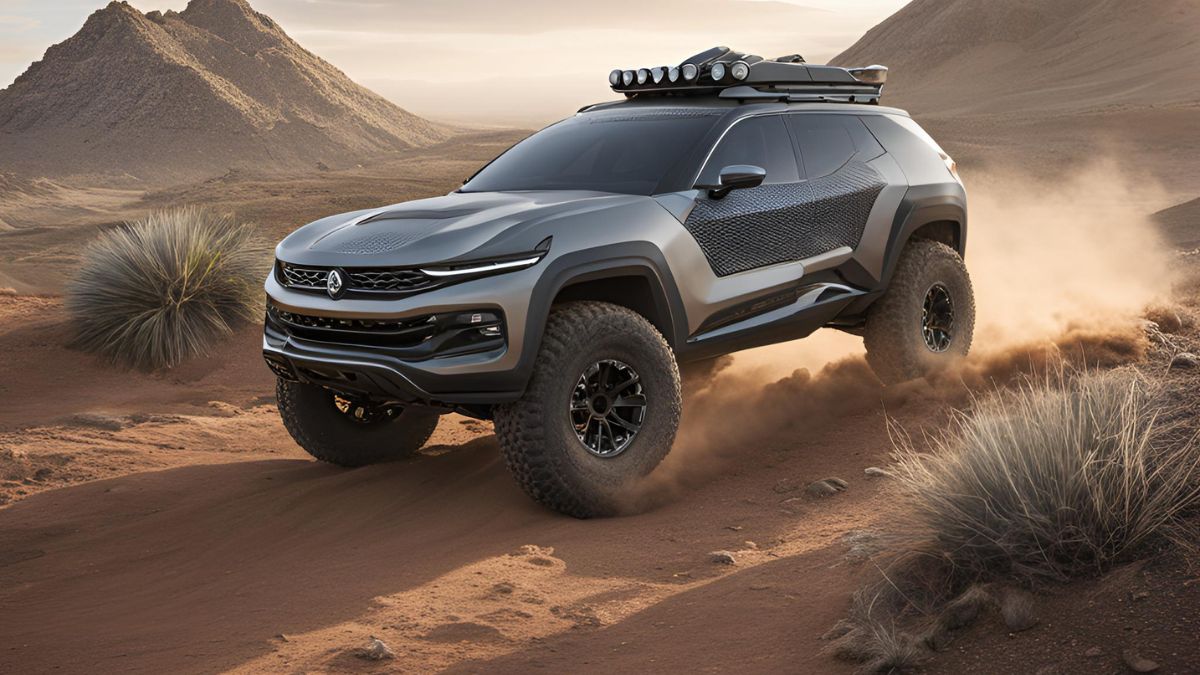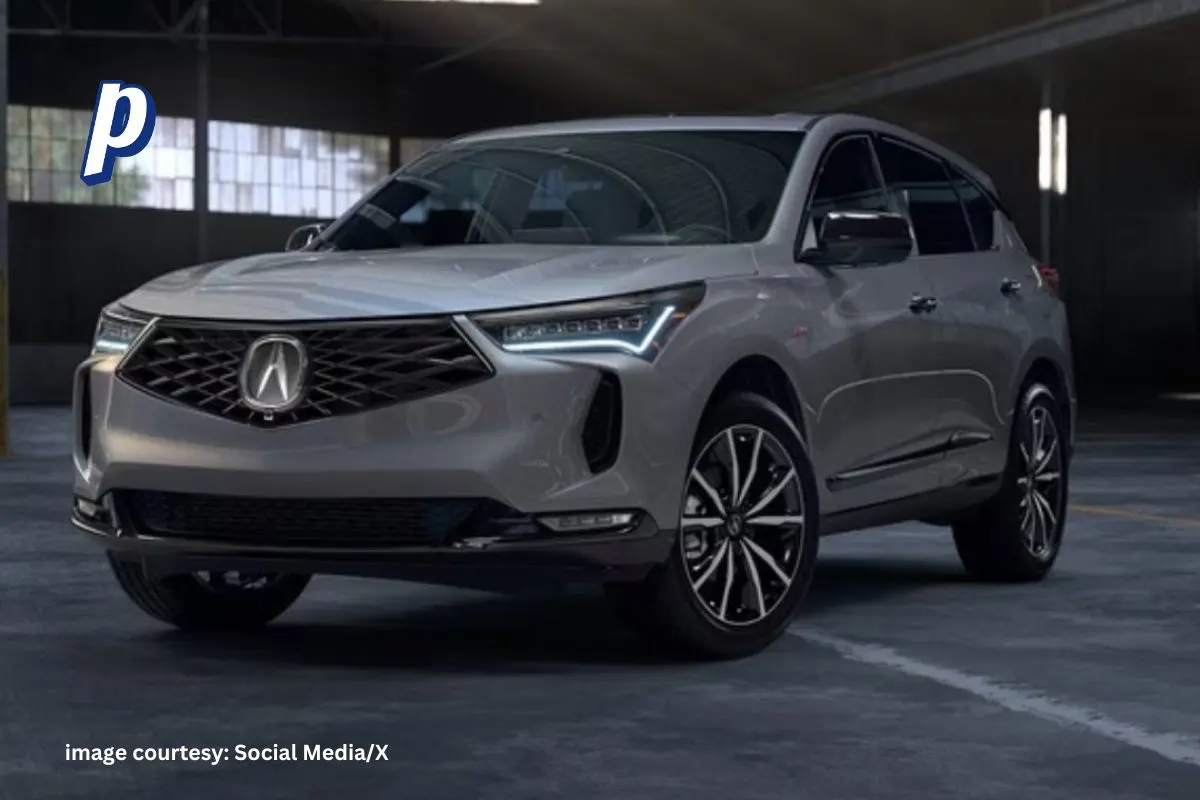Explore how electric 4x4s are revolutionizing off-roading. Learn about the benefits, challenges, and upcoming innovations in electric off-road vehicles that will change the future of adventure driving.

Off-roading has traditionally been the domain of powerful internal combustion engine (ICE) vehicles, built to take on rugged terrains and extreme conditions. However, with the automotive world steadily transitioning towards electrification, a new wave of electric 4x4s is set to transform the off-roading landscape. These vehicles bring innovative technologies, increased torque, and a reduced environmental footprint. But how will electric 4x4s change the game? This comprehensive guide dives deep into the future of off-roading, examining the advantages, challenges, and long-term potential of electric 4x4s.
The Rise of Electric 4x4s
As the world becomes more environmentally conscious, the demand for electric vehicles (EVs) has surged. This trend is now making its way into the off-roading community, where the traditional gas-guzzling SUVs and trucks are being joined by an array of electric alternatives. While early electric vehicles were mostly urban-focused, new advancements have allowed manufacturers to produce electric 4x4s capable of conquering the most difficult terrains.
The electric off-road vehicle market is still in its infancy, but several automakers are leading the charge. Companies like Rivian, Tesla, Ford, and Jeep have either released or announced plans to release fully electric 4x4s designed specifically for adventurers. With superior torque, fewer mechanical limitations, and eco-friendly credentials, these vehicles are set to revolutionize how we think about off-roading.
How Electric 4x4s Work: A Quick Overview
Before diving into the future implications of electric 4x4s, it’s essential to understand the basic mechanics of these vehicles.

- Electric Powertrain: An electric 4×4 typically consists of one or more electric motors, a large battery pack, and various electronic components that manage power delivery. Unlike traditional vehicles that rely on complex transmission systems, electric motors deliver instant torque directly to the wheels. This allows for more precise power management, which is a significant advantage when off-roading in challenging conditions.
- Torque and Traction Control: One of the key advantages of electric motors is their ability to produce maximum torque from a standstill, which is ideal for off-roading situations like rock crawling or hill climbing. Electric 4x4s often come equipped with advanced traction control systems that can instantly adjust torque distribution between the wheels, making them highly capable on rugged terrain.
- Regenerative Braking: Regenerative braking is another significant feature of electric 4x4s. This system captures energy when the vehicle slows down or descends hills, feeding it back into the battery. This not only extends range but also provides additional control on steep descents, a critical aspect of off-roading.
The Advantages of Electric 4x4s for Off-Roading
Electric 4x4s offer numerous advantages that are likely to appeal to off-road enthusiasts, from enhanced performance to lower environmental impact.
- Instant Torque for Better Performance: Electric motors provide immediate torque, which means electric 4x4s can handle tough terrains with more ease compared to gas-powered vehicles. This is especially useful in situations that require precise control, such as crawling over rocks or driving through deep mud. Traditional off-road vehicles often need to rev their engines to build up torque, but electric 4x4s deliver that power instantaneously, improving both performance and control.
- Improved Traction and Stability: Electric 4x4s have superior traction control capabilities. With no need for a traditional transmission system, power can be distributed more precisely to individual wheels. This makes electric off-roaders incredibly stable and better suited to uneven terrains like sand, snow, and rocky trails.
- Silent Off-Roading Experience: One of the standout features of electric vehicles is their quiet operation. While the sound of a roaring engine has long been associated with off-roading, there are many benefits to silent running. Electric 4x4s allow you to enjoy the natural sounds of the wilderness without the noise pollution of an internal combustion engine. This quiet operation also disturbs wildlife less, making electric off-roaders more environmentally friendly.
- Fewer Moving Parts and Lower Maintenance: Electric 4x4s have far fewer moving parts than their gas-powered counterparts, which translates to lower maintenance costs and fewer mechanical failures. Off-roading can be tough on vehicles, with frequent exposure to dirt, water, and extreme conditions. The simplified design of electric vehicles reduces the chances of mechanical breakdowns, especially in remote locations where repairs can be challenging.
- Regenerative Braking and Range Extending Features: As mentioned earlier, regenerative braking helps extend the range of electric vehicles by capturing energy when decelerating or driving downhill. This feature is particularly useful for off-roading, where terrain changes frequently, and drivers often need to descend steep hills. The ability to recover energy helps improve the overall range and efficiency of electric 4x4s.
read more: Off-Roading 101: Mastering Techniques for Mud, Sand, and Rock Crawling
Challenges for Electric 4x4s in Off-Roading
While electric 4x4s offer significant advantages, they also face several challenges that need to be addressed to ensure their widespread adoption in the off-road community.

- Limited Range and Charging Infrastructure: Range anxiety is still a concern for many electric vehicle owners, and it becomes even more pronounced in off-roading scenarios. Off-roading often takes place in remote areas where charging stations are few and far between. While some electric 4x4s offer impressive range figures, extended off-road adventures can quickly deplete battery life. Until a more robust charging infrastructure is developed in rural and wilderness areas, electric off-roaders may face limitations.
- Weight and Durability: Electric 4x4s often come with large battery packs, which can add significant weight to the vehicle. This additional weight may affect the vehicle’s ability to handle certain off-road terrains, such as deep mud or sand. Furthermore, while electric vehicles are generally more reliable due to fewer mechanical components, their batteries and electronic systems must be built to withstand the harsh conditions of off-roading, including exposure to water, dust, and extreme temperatures.
- Water Crossing Limitations: One of the more unique challenges facing electric off-roaders is water crossing. Electric vehicles are designed with sealed battery systems, but deep water crossings could pose risks to the electronics. Off-roading often involves driving through rivers or streams, and while electric 4x4s are being designed to handle such conditions, they may not yet be as resilient as traditional gas-powered vehicles.
- High Initial Cost: Electric 4x4s tend to have higher upfront costs compared to gas-powered off-road vehicles. While lower maintenance and fuel savings can offset these costs over time, the high initial price point may deter some off-road enthusiasts from making the switch.
Electric 4×4 Innovations: What’s on the Horizon
Automakers and technology companies are continuously innovating to improve the performance and capabilities of electric 4x4s. Several upcoming advancements could make electric off-roading even more viable in the near future.
- Solar-Powered Charging: One of the most promising innovations for electric off-roaders is solar-powered charging. Some manufacturers are already experimenting with solar panels integrated into the roof or other parts of the vehicle to trickle-charge the battery. While this technology may not yet be able to fully charge an electric 4×4, it could extend the range during long off-road trips, especially in sunny conditions.
- Portable Charging Solutions: Another advancement that could solve the issue of range anxiety is portable charging solutions. Companies are developing mobile charging stations or portable battery packs that could be carried with the vehicle on off-road adventures. These portable chargers would allow drivers to recharge their vehicles in remote locations, making extended off-road trips more feasible.
- Advanced Battery Technology: Battery technology continues to evolve, with advancements such as solid-state batteries and graphene batteries on the horizon. These next-generation batteries promise faster charging times, longer ranges, and increased durability, which are crucial for the future success of electric off-roaders.
- Autonomous Off-Roading: Autonomous driving technology is rapidly advancing, and it’s only a matter of time before we see autonomous off-roading features. Companies like Rivian and Tesla are already integrating advanced driver assistance systems (ADAS) into their vehicles, and future electric 4x4s may be able to navigate challenging terrains with minimal input from the driver.
How Electric 4x4s Will Impact the Off-Roading Community
The introduction of electric 4x4s is poised to have a significant impact on the off-roading community, changing everything from the way enthusiasts explore rugged landscapes to the environmental footprint of their adventures.
- Environmental Benefits: One of the most notable impacts of electric 4x4s is the reduction in environmental damage. Traditional off-road vehicles produce high levels of emissions and can contribute to soil erosion and pollution in sensitive ecosystems. Electric vehicles, on the other hand, produce zero emissions and have a smaller environmental footprint, making them a more eco-friendly option for off-road enthusiasts who want to preserve the natural landscapes they explore.
- Increased Accessibility: Electric 4x4s may also make off-roading more accessible to a broader audience. With simplified maintenance, quieter operation, and advanced features like autonomous driving, electric off-roaders could attract new enthusiasts who were previously hesitant to engage in the hobby.
The Electrification of Off-Roading
Electric 4x4s are set to revolutionize the off-roading experience. With instant torque, advanced traction control, and eco-friendly benefits, they bring a new level of performance and efficiency to the adventure world. While challenges such as range limitations and charging infrastructure remain, the future looks promising with upcoming innovations in battery technology, portable charging solutions, and solar-powered systems. Electric vehicles offer lower maintenance, quieter operation, and more precise handling, making them an exciting choice for off-roaders looking to explore rugged landscapes while reducing their environmental impact.
As manufacturers continue to develop electric 4x4s and improve the associated technology, these vehicles will likely become the new standard for off-roading enthusiasts. The days of relying solely on gas-guzzling behemoths for outdoor adventures may be coming to an end, replaced by cleaner, quieter, and more capable electric off-roaders that offer a thrilling yet eco-conscious driving experience.
For those ready to embrace the future, now is the time to start considering electric 4x4s as the next step in your off-roading journey. With new models already hitting the market, the opportunity to be at the forefront of this revolution is here. Electric off-roading isn’t just a trend—it’s the future of adventure.
By focusing on the advantages and addressing the challenges, electric 4x4s present a thrilling opportunity for off-road enthusiasts to lead the charge into a more sustainable, technologically advanced future. Whether you’re navigating through mud, sand, or rocks, electric 4x4s will soon be the ultimate tool for conquering the most extreme terrains with ease and efficiency.














2 thoughts on “The Future of Off-Roading: How Electric 4x4s Will Change the Game”